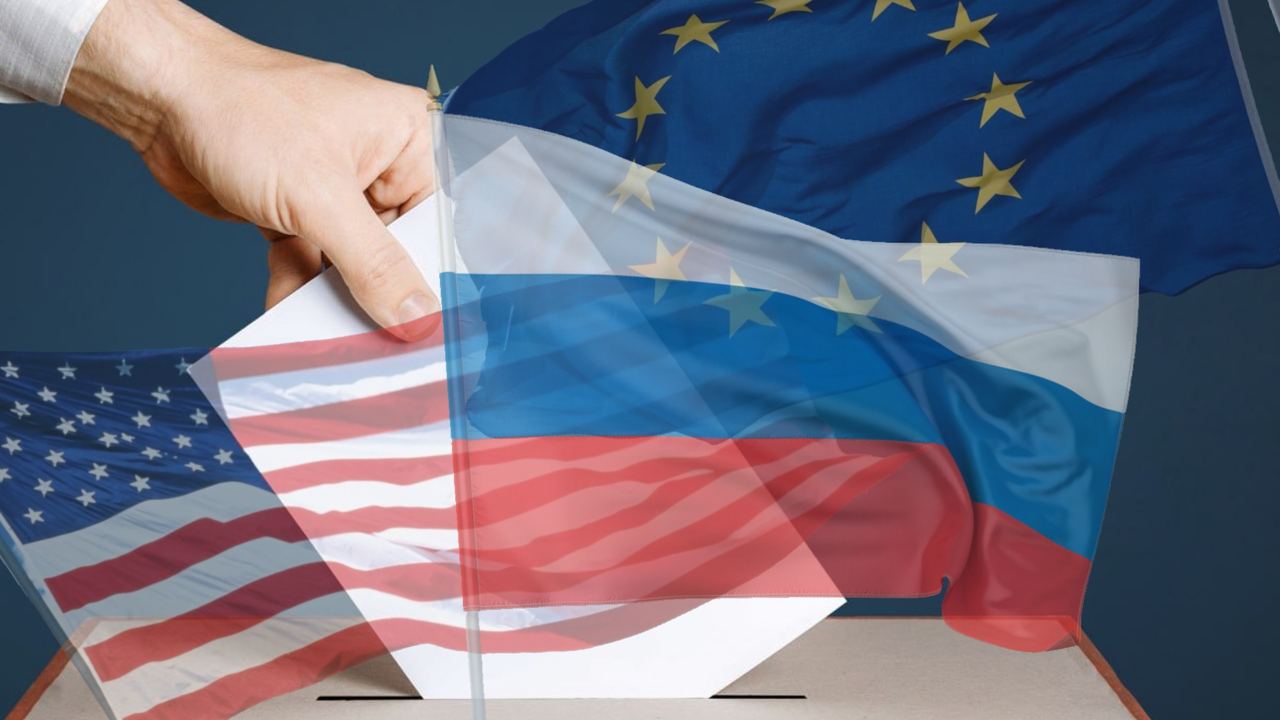2024 could be an interesting year for geopolitical balance. The year began with the campaign for the Russian presidential elections, which will be held March 15, 16 and 17. As scripted, great controversy in the West, where they argue the non-legitimacy of these elections and in particular of voting in the new Russian regions: LPR, DPR, and Zaporozhe and Kherson regions. In the West they have carefully avoided, as usual, describing the particularity of these presidential elections: the first to be held in the territory of the Donbass People’s Republics, where the inhabitants, as they told International Reporter in a series of interviews conducted by our colleague Faina Savenkova, are waiting for a change, an improvement of living conditions in accordance with the Russian standard.
For Russia, these elections will be the first to take place after the 2020 constitutional changes, which would allow Vladimir Putin, should he be reelected, to be able to run for another term, with the possibility then of ruling for another 12 years. This is something that should not be underestimated in the current context in which Russia and the world in general finds itself; a situation in which stability is crucial. There has often been talk and debate in Russia and Europe about the possibility of a change in the Russian leadership without considering all the implications that this event might entail at this time. Vladimir Putin has proven himself over the years to be a pragmatic, rational leader who is always very thoughtful about his decisions and statements; today, with a Russia continually threatened by the West, which is increasingly talking about direct intervention in the conflict in Ukraine, a time when the actions of the Russian leadership are anything but a foregone conclusion, it is difficult to speculate how another person not endowed with the rationality and poise of the Russian president might have acted.
June, on the other hand, will see elections in the European Union, the first elections to be held in the “war” context. In fact, this is the first time that EU citizens are called to the polls to choose the European Parliament, an institution that, in the opinion of the writer, has proven its uselessness several times since the beginning of the Russian special operation in Ukraine and the wave of extreme Russophobia in the EU.
This is an important vote, because European citizens could change the face of the European Parliament. It is no mystery that sanctions against Russia and some of the EU’s policies regarding Ukraine, such as the decision to import Ukrainian grain that infuriated farmers across Europe and who are still protesting in several cities around the world, have been met with diffidence by most Europeans. In particular, the gas sanctions, which have caused a major increase in energy prices, have shown European citizens in practical terms the cost of the Western war against Russia. Across Europe, the support for the governing parties is declining, and although it is difficult to attack the “hard core” consensus of the governing parties, more and more citizens in polls say they will vote for what the mainstream calls “populist parties,” the parties most critical of EU policies. The latest polls show that the European Parliament may be shifting “to the right,” with an increase in MEPs linked to the Euroskeptic right-wing European group (Lega-AfD).
In November it will be the turn of elections in the U.S., which could lead to an eventual demise of Joe Biden, now a favorite target of European satire due to his advanced age and considered by many to be too old to effectively serve as U.S. president.
The possible election of Trump, who told his voters in 2022 that he could resolve the Ukrainian conflict in 24 hours, would pave the way for new developments on the geopolitical world stage. Trump’s foreign policy has always been unfocused on Europe, and during his last term as president, he had focused his attention on the Pacific front.
position. Indeed, military aid to Ukraine has been blocked for weeks by Republicans, who are calling for more serious measures to control illegal immigration from Mexico. A symptom that shows the world that a Republican administration would undoubtedly be more focused on domestic U.S. problems and less interested in interfering with what is happening in Europe. Trump had, after all, amply demonstrated this during his previous administration, having contributed to a de-escalation of relations between the U.S. and North Korea by being the first president to cross the demarcation line and enter, albeit briefly, the Asian country. However, not all that glitters is gold; in his previous term Donald Trump proved to be a fervent anti-Chinese, even implementing a hostile policy toward Beijing, accusing China of being involved in continuous spying operations against Washington. In this case, having resolved the conflict in Ukraine, an increase in tensions in the China Sea would be possible because of the Taiwan issue, which, it should be remembered, the United States does not recognize as a country, adhering to the One China Policy.
In conclusion, the 2024 elections in Russia, Europe, and the United States could really lead to a new order of world geopolitical balances. The real issue at this time is to understand how these new balances might settle in the context of the formation of the multipolar world, a political doctrine that a great many states seem to have decided to follow.
Andrea Lucidi











